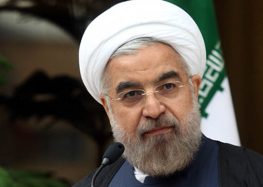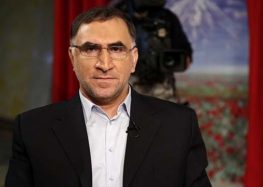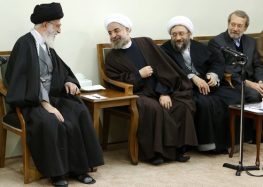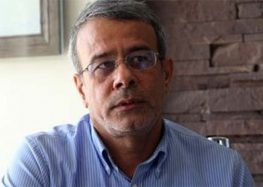Reformist Ally: “Constructive Collaboration” With Iran’s Parliament Will Aid Rouhani’s Policy Battles

Iran’s newly re-elected centrist President Hassan Rouhani should engage in “constructive collaboration” with Parliament to implement his policies amid increasing opposition from powerful hardliners, a reformist politician told the Center for Human Rights in Iran (CHRI).
“One thing that could help the government a lot is constructive collaboration with Parliament, which has been growing day by day,” said Mohammad Sadegh Javadi-Hessar, a member of the National Trust Party of Iran, in a recent interview.
“The two years or so left in this parliamentary term could become two golden years for Mr. Rouhani’s government,” he added.
Continued Javadi-Hessar: “The next parliamentary term [2020-24] may not be in his favor. Those who suffered heavy losses in the [2016] parliamentary elections and the [2017] presidential and council elections may very well make it harder [for Rouhani’s allies to be voted] into Parliament and then he could face serious difficulties.”
Moderates, reformists and independents made major gains in Iran’s February 2016 parliamentary elections, putting an end to the conservative majority that had been in place since 2012.
“To make it through the next two grueling years [of the current parliamentary session], a positive collaboration with Parliament is something Mr. Rouhani should pay attention to because it will help the government realize some of the people’s wishes,” he added.
Asked about the escalating attacks on Rouhani since Supreme Leader Ali Khamenei, who Rouhani formerly served as an advisor, began publicly criticizing him a few weeks before the presidential election on May 19, the reformist politician responded that Rouhani’s opponents have been trying to widen the rift to advance their goals.
“The (conservative) opposition did everything to prevent Rouhani from winning, but came out empty handed” said Javadi-Hessar. “Now they want to wreck the government and slow down its progress. This will create disillusionment as people won’t see their wishes come true.”
“The government should go into survival mode,” he continued. “Opponents should not be allowed to corner the government into a confrontation with the supreme leader. That’s what they are really after.
“If they succeed in creating an open rift between the leader and Mr. Rouhani, then mobs would feel free to ‘fire at will’ and severely weaken the government,” he added.
Javadi-Hessar was referring to a June 7 speech by Khamenei, who urged his followers to act in a “fire at will” fashion if the government—a veiled reference to the Rouhani administration—fails to do its job.
“The (conservative extremists) want to use the political crisis they created as an excuse to push toward impeachment,” he added. “The reformist factions and supporters of the Rouhani government should not allow the road to progress to sink into quicksand.”
At the same time, Javadi-Hessar cautioned Rouhani supporters to move slowly to prevent unnecessary confrontations that could benefit the president’s adversaries.
“The government should act very wisely by using its loyal followers to solve problems along the way without playing into the hands of opponents who want to generate crisis after crisis,” he added.





